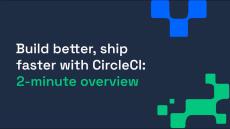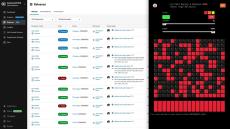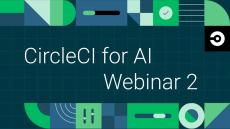|
By Tadashi Nemoto
With the increasing adoption of Kubernetes in recent years, there are various means and tools for achieving continuous delivery to Kubernetes. While it is possible to create a consistent CI/CD pipeline up to deploying to Kubernetes using CI/CD tools like CircleCI, there has been a rise in cases combining dedicated CD tools like FluxCD and ArgoCD to achieve this as well. A common aspect among these CD-dedicated tools is their adoption of GitOps.
|
By Vivek Maskara
LlamaIndex is a framework for building context-augmented large language model (LLM) applications. It enables you to augment the model with domain-specific data to customize it and improve its responses to your use case. You can use this framework to build a question-answering chat bot, a document understanding and extraction application, or an autonomous agent. The framework provides tools to ingest data, process it, and implement query workflows that combine data access with LLM prompts.
|
By Waweru Mwaura
As codebases mature, they grow in complexity. As time goes on, higher complexity increases the cost of changing and scaling a system. Scalability is an essential feature of enterprise software. End-to-end integration testing is not a very scalable process, especially when you are dealing with multiple systems.
|
By Waweru Mwaura
Ensuring that an application renders properly in any browser size is important for user experience but tricky to get right. With users accessing your application on devices that have a wide range of screen sizes and aspect ratios, it’s difficult to guarantee that your application will look and function as intended for every user.
|
By Vivek Maskara
OpenCV is a powerful open source computer vision and machine learning software library for real-time applications. It provides multiple functionalities, including image processing, object detection, and video analysis, making it a fundamental tool for researchers and developers in the field of computer vision. You can deploy your OpenCV applications using AWS Lambda, a serverless compute service that lets you run code without provisioning or managing servers.
|
By Olususi Oluyemi
React is an open source JavaScript library known for its simplicity and incredible performance when creating an interactive user interface. React has gained wide adoption from web developers and reputable companies. While there are other frameworks in the JavaScript ecosystem, React is often the first choice when it comes to user interface and frontend business logic.
|
By Jacob Schmitt
DevOps accelerates modern software development by automating processes and breaking down silos between development and operations teams. This paradigm shift emphasizes continuous integration (CI) and continuous delivery (CD) to speed time to market, facilitate higher-quality releases, and improve customer satisfaction.
|
By Vivek Maskara
PyTorch is an open source machine learning (ML) framework that makes it easy for researchers and developers to move their projects from prototyping to production. With PyTorch, you don’t have to learn complex C++ code - you can use regular Python for your ML projects. This makes it a great choice for anyone who wants to get started quickly and easily with ML.
|
By Yuki Sakamoto
Open source software (OSS) is a type of software with source code that can be published, reused, modified, and redistributed free of charge. This approach to building, maintaining, and distributing software has benefits for businesses and end users alike. In this article, you will learn what OSS is, its benefits for the software community, and the differences between different open source licenses.
|
By Jacob Schmitt
Mean time to repair (MTTR) is a metric used to measure the average time required to diagnose and fix a malfunctioning system or component, ensuring it returns to full operational status. In software development, downtime halts user access and disrupts operations, leading to customer dissatisfaction and financial losses. In manufacturing, it slows production, affecting supply chains and profitability. In healthcare, downtime can compromise patient care and safety.
|
By CircleCI
In this episode, Rob sits down with Ken Rose, CTO of OpsLevel, to delve into the evolving landscape of platform teams and the pressing challenges they face. Together, they explore OpsLevel's mission to tackle the mounting complexities encountered by modern organizations.
|
By CircleCI
Discover how digital transformation can revolutionize your business processes, culture, and customer experiences. Learn about the key benefits, including enhanced customer satisfaction, operational efficiency, and increased competitiveness. See how automation and CI/CD pipelines streamline operations and drive innovation.
|
By CircleCI
Discover how CircleCI can streamline your CI/CD workflow in this 2-minute demo. Learn how to set up, configure, and deploy with ease. To learn more about the CircleCI offerings, visit.
|
By CircleCI
Are you looking to enhance your version control skills and streamline your CI/CD pipeline? Listen to our on demand webinar to learn.
|
By CircleCI
Join the CircleCI product team for an in-depth look at just-launched and upcoming features. This webinar starts with a quick overview of what we're building and why. Then we cover new features and upcoming changes across CI, CD and AI & LLMOps. We cover everything from config optimization recommendations to release tracking to testing config changes locally with the VS Code extension.
|
By CircleCI
CircleCI releases gives your development team greater confidence by bringing visibility, control and risk mitigation to the deploy and release process. In this video, we walk you through a typical deployment workflow to Kubernetes highlighting the powerful release orchestration capabilities designed to extend our platform into your staging and deployment environments including release and environment tracking, canary rollouts, and easy rollbacks directly from the CircleCI UI.
|
By CircleCI
For AI code assistants, recent accuracy and reliability advancements mean these powerful tools are starting to live up to their promise for developers, accelerating their workflow and helping with programming tasks.
|
By CircleCI
DevSecOps, short for development, security, and operations, is a methodology that integrates modern security practices into the software development and delivery process.
|
By CircleCI
To learn more about CircleCI, visit: https://circleci.com/product/
|
By CircleCI
In this episode, Rob is joined by Luis Ceze, CEO of OctoAI and a distinguished professor of computer science at the University of Washington. Together, they unpack the surge of interest in AI, attributing it to the convergence of factors like the unprecedented availability of data thanks to the internet boom and the accessibility of powerful computing resources.
|
By CircleCI
Many organizations fail to adopt application security best practices that work to protect software, data, and users. But integrating security tools into your application development environment can make security issues more visible and easier to catch while providing real-time insights into threats and vulnerabilities.
|
By CircleCI
There are many reasons teams get stuck in the process of adopting DevOps. Now Rob Zuber, CircleCI CTO, brings an inspiring and practical guide to moving your team further up the DevOps maturity ladder, regardless of where you are now. In this ebook, Rob brings two decades of experience leading teams to work for you, with practical takeaways and strategies that work for real-world teams, from startups to enterprise companies.
|
By CircleCI
But getting your team on board can be a challenge. Shipping great products isn't just about writing good code. If you want confidence in your code, knowing how to properly test it is key. Download this guide today and ship more confidently tomorrow.
|
By CircleCI
Many of the world's highest performing software development teams have adopted DevOps practices, simplifying software builds, testing, and deployment. But standard DevOps process fails to address a vital issue: security and vulnerability management. Learn how to shift security left and get your entire team onboard to maintain the security of their libraries and container images.
|
By CircleCI
There's a lot of excitement and accolades around startups everywhere these days -- success stories and big payoffs. But no one talks about what it really takes to get there: the day-to-day onslaught of small, technical decisions that are expected of a technical leader in a fast-growing company. In this ebook, CircleCI CTO and 20+ year technology veteran Rob Zuber shares the tactics he's used to focus on what's important, make the right decisions at the right times, and to strategize which decisions to make now, later, or never.
|
By CircleCI
The concept of 'testing in production' has started to become an increasingly viable methodology and a tool for teams to use in their validation process - but what does it really mean to test in production? And what does it cost to do it well? In this ebook, CircleCI CTO Rob Zuber will explore these questions and other topics like.
|
By CircleCI
DevOps is a growing trend, but where did it come from? It's the unification of two traditionally disparate worlds into one cohesive cycle. But it's not some recent invention or fad; it's the result of years of iteration, as engineers have cracked risk into progressively smaller chunks. In this whitepaper, we'll discuss.
|
By CircleCI
...but it doesn't end there. Once you've hired the best, keeping them engaged, motivated, and working well with each other is an ongoing challenge. In this ebook, you'll hear from some of our top technical leaders about the techniques and principles we've spent years honing. Growing a technical company requires more than great technical leadership-it requires thoughtful, compassionate, and expert people leadership as well. Download this ebook today, and help your team thrive.
|
By CircleCI
Workflows were created so that teams could run their builds in any way they choose. This ebook contains examples and config files from 8 different open source projects so you can see exactly how real development teams (at companies like Facebook and Google) are using workflows right now to ship applications.
- October 2024 (1)
- August 2024 (2)
- July 2024 (6)
- June 2024 (8)
- May 2024 (2)
- April 2024 (5)
- March 2024 (4)
- February 2024 (7)
- January 2024 (7)
- December 2023 (7)
- November 2023 (15)
- October 2023 (9)
- September 2023 (12)
- August 2023 (5)
- July 2023 (12)
- June 2023 (8)
- May 2023 (6)
- April 2023 (6)
- March 2023 (11)
- February 2023 (11)
- January 2023 (4)
- December 2022 (3)
- November 2022 (13)
- October 2022 (15)
- September 2022 (19)
- August 2022 (15)
- July 2022 (20)
- June 2022 (17)
- May 2022 (17)
- April 2022 (23)
- March 2022 (21)
- February 2022 (14)
- January 2022 (25)
- December 2021 (15)
- November 2021 (16)
- October 2021 (21)
- September 2021 (25)
- August 2021 (7)
- July 2021 (16)
- June 2021 (17)
- May 2021 (17)
- April 2021 (21)
- March 2021 (26)
- February 2021 (12)
- January 2021 (3)
CircleCI is the world’s largest shared continuous integration and continuous delivery (CI/CD) platform, and the central hub where code moves from idea to delivery. As one of the most-used DevOps tools that processes more than 1 million builds a day, CircleCI has unique access to data on how engineering teams work, and how their code runs.
Companies like Spotify, Coinbase, Stitch Fix, and BuzzFeed use us to improve engineering team productivity, release better products, and get to market faster.
Everything great teams need:
- Workflows for job orchestration: Define and orchestrate how job execution (such as build, test, deploy) is run, giving you complete control over your development process across multiple supported configurations.
- First-class Docker support: Run any image from Docker’s public/private registry or other common registries, customizable on a per-job basis. Build Docker images, access Docker layer caching, Compose, and more.
- Choose the CPU/RAM you need: Easily configure your compute and memory to fit your team’s specific pipelines. Choose resources that give you optimal performance and increase speed.
- Language-agnostic support: CircleCI supports any language that builds on Linux, Windows, or macOS, including C++, Javascript, .NET, PHP, Python, and Ruby. You are free to use any toolchain, framework, or version you want.
- Powerful caching: Speed up your pipelines with expanded caching options, including images, source code, dependencies, and custom caches. Gain control over cache save and restore points throughout your jobs for optimal performance.
- SSH or run local builds for easy debugging: Quickly find and solve problems using SSH access or run jobs in your local environment to ensure faster remediation of issues. Find and solve bugs where they happen for fast recovery.
- Unmatched security: The controls you need to be confident your code is protected. Host in our cloud or on your own infrastructure, LDAP for user management, full-level virtual machine isolation, and more.
- Insights dashboard: Realize the full value of CircleCI with the Insights dashboard. Track status, monitor duration, and optimize pipelines with ease.
More speed and configurability than ever before with customizable pipelines.





























